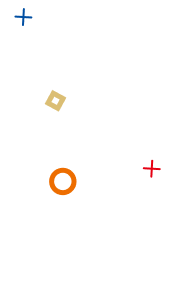

Academic Honesty
Academic integrity is a core value of the Hong Kong Shue Yan University, in both education and research.
Every student has an interest in protecting and supporting the good reputation of the University. Ethical practice in scholarly work and professional behavior are recognised as important graduate attributes, and are an essential criterion of workplace professionalism.
It is important that all students understand their responsibility to conduct themselves in an ethical manner in all aspects of their studies. This website provides student information related to plagiarism and academic integrity.
Every student has an interest in protecting and supporting the good reputation of the University. Ethical practice in scholarly work and professional behavior are recognised as important graduate attributes, and are an essential criterion of workplace professionalism.
It is important that all students understand their responsibility to conduct themselves in an ethical manner in all aspects of their studies. This website provides student information related to plagiarism and academic integrity.
What is Academic Misconduct?
Academic Misconduct in relation to academic work means any form of cheating or dishonest conduct, including but not limited to plagiarism and assisting another person to engage in academic misconduct. Some examples of Academic Misconduct are as follows:
- Plagiarism: using someone else’s ideas, words, data, or other materials produced by them without acknowledgement;
- Using unauthorized materials: The giving, receiving or utilizing of unauthorized information or assistance in completing an assignment, test, or examination;
- Undeclared multiple submissions: submitting work for assessment that has already been submitted (partially or in full), either for the current programme or for another qualification of HKSYU or any other university, unless this is specifically provided for in the special regulations for the programme;
- Contract cheating: getting someone else to complete part or all of the work and then submitting the work as if one had completed it oneself. A Student may be found guilty of contract cheating if s/he :
- Buys a completed assignment from a tutoring or ghostwriting company;
- Asks someone else to write part or all of an assignment;
- Buys, sells, or exchanges completed assignments or assignment answers.
- Impersonation: impersonating another student or allowing oneself to be impersonated by another person to participate in a class, test or examination;
- Collusion in individual and/or group work: Collusion refers to any unauthorized mode of collaboration between students. Collusion occurs when, without the authorisation of the course instructor, a student:
- works with one or more people to prepare and produce work
- allow others to copy his/her work or share his/her answer to an assessment task
- produces or offers to produce academic work for other students.
- Fabrication, falsification or misrepresentation: falsifying data, results, or other outputs or aspects of research work, including documentation and participant consent, and presenting or recording such data as if they were real.
What is Plagiarism?
Plagiarism means, in relation to work submitted for assessment, the unacknowledged use by a person of the ideas and materials of others in such a manner as to objectively convey the impression that those ideas and materials are his or her own. For example:
- Word-for-word quotation without clear acknowledgement: Directly quoting another person's language, data or illustrations without clear indication that the authorship is not his/her own and without proper acknowledgement of the source;
- Paraphrasing without clear acknowledgement: Paraphrasing the work of others by altering a few words and changing the order of words, or by closely following the structure of their argument, is plagiarism if the source of the work is not acknowledged;
- Inaccurate citation: Not citing correctly according to the conventions of his/her discipline. After using ideas taken from someone else, the student must use the appropriate form to indicate where the idea or the quoted passage comes from.
- Fabricated references: Students should not include anything in their references or bibliography that they have not actually accessed and consulted;
- Self-plagiarism: reusing one’s own ideas, words, data or other material already submitted for formal assessment at HKSYU or another institution, or for publication elsewhere, without acknowledgement, unless expressly permitted by the assessment.
- Translated plagiarism: using translated material from publications in another language in a paper without citing the source.
- Overcitation: summarizing, paraphrasing or quoting directly from other sources too frequently in a piece of work. For example, it is considered over citation to repeat the same citation in every sentence when the source and topic have not changed or to cite several sources with similar ideas. If the submission contains a disproportionate quantity of cited material, such that the student has contributed very little original material to the submission, then the student’s mark should reflect that limited level of contribution.
↑

